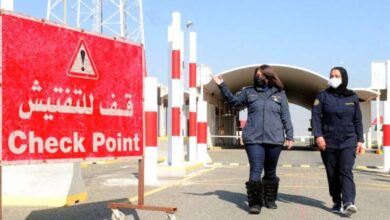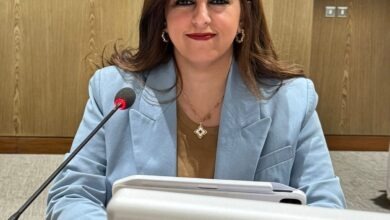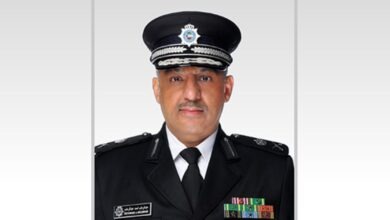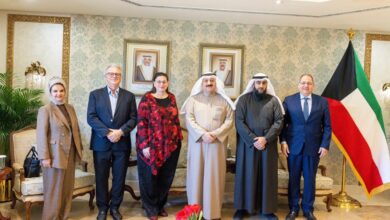Kuwait gears up for an era of progress, development
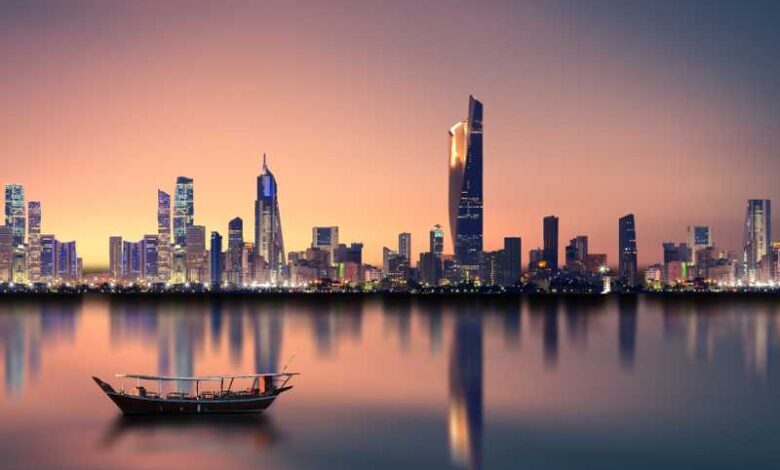
By Tareq Yousef AlShumaimry
His HIghness the Amir Sheikh Mishal Al-Ahmad Al-Jaber Al-Sabah is steadily and sagaciously steering the country on the path that he promised when he took on the country’s leadership in December 2023.
In his inaugural speech before parliament after taking his oath of office as the seventeenth ruler of Kuwait, His Highness Sheikh Mishal Al-Ahmad pledged to return the country to its development track in order to keep up with other more agile and assertive states in the region, and to speed up the implementation of long-pending development projects and reforms. However, the amir’s plans were repeatedly thwarted by a perpetually gridlocked and contentious parliament.
On 15 February 2024, amid escalating tensions between the incumbent government and parliamentarians, His HIghness the Amir dissolved the National Assembly and ordered snap-elections be held. The return of many lawmakers from the dissolved parliament, following general elections on 4 April, led once again to a standoff between executive and legislative blocs in parliament.
In a televised address to the nation on 10 May, His Highness the Amir dissolved parliament and temporarily suspended certain constitutional articles for a period not exceeding four years. Announcing the dissolution, His Highness stated that the suspension of the National Assembly was precipitated by the prevailing unhealthy political atmosphere, which led to “transgressions on the constitution that risked undermining constitutional values and democratic principles”.
His Highness added that he would “never allow democracy to be exploited to destroy the state, as the interests of Kuwaitis are above all else and I am bound to protect and preserve these interests”. The announcement also noted that during the four-year interim period all aspects of the democratic process would be studied and revisions made if needed, before decisions deemed appropriate are taken.
During the provisional period, His Highness the Amir and a cabinet formed by the premier-designate, His Highness Sheikh Ahmad Al-Abdullah Al-Sabah, would assume the powers vested in the National Assembly.
Accordingly, on 15 May, a 13-member cabinet headed by His Highness the Prime Minister took oath of office in front of His Highness the Amir. In just the one-month period since assuming office, the cabinet has issued a slew of decisions that authorize ministries to prioritize and accelerate critical projects, especially those aligned with Kuwait Vision 2035. The Council of Ministers also instructed each government entity to assess their postponed projects and fast-track stalled ones so that they could be immediately approved, and those projects found vital to the economy as well as generate public revenue and meet the aspirations of citizens, could be speedily implemented.
The cabinet directives also emphasized the need for government entities to conduct a swift review of all planned developmental projects and prepare a suitable timeline for their launch, based on their significance to the public and to the state. The various ministries were also instructed to form a 100-day plan of action, outlining the goals, steps, timeframe, and challenges pertaining to their respective projects and plans.
In response to the directives of the Council of Ministers, several ministries have begun outlining plans to revive stalled projects and prepare blueprints for new ones. Last week the ministry of public works revealed plans to issue a dozen new contracts to address the long pending issue of road-network maintenance. The ministry also began reviving or speeding up several mega projects, including Terminal 2 at Kuwait International Airport, the Maternal Hospital project, the Umm-Al-Haiman Water Treatment Plant, and the greenfield Kuwait–Riyadh rail line.
The cabinet’s decision to accelerate projects also saw the back-to-back launch of two strategic projects at the end of May. The first occurred on 29 May with the official inauguration by His Highness the Amir of full operation at Al-Zour Refinery. A key milestone project for the country’s oil industry, and the ‘New Kuwait: Vision 2035, the Al-Zour Refinery project marks a transformative change to Kuwait’s production and exports of oil-derivatives.
With a refining capacity of 615,000 barrels per day, which is among the highest refining capacities in the world, the Al-Zour refinery will boost the country’s total refining capacity to over 1.4 million barrels per day. The refinery’s specific design also allows it to process various types of heavy oils, produce high-value oil derivatives, including jet-fuel, diesel, and chemical naphtha, as well as the more environment-friendly low-sulfur fuel oil for use in local power generating plants.
Then, on 31 May, Minister of Public Works Noura Al Meshaan and the Saudi Minister of Transport and Logistics Saleh bin Nasser Al-Jasser, gave the go-ahead to the financial, economic, and technical feasibility study on the Kuwait-Riyadh Railway link. When completed, tentatively by 2028, the strategic railway link will boost bilateral trade, logistics, and economic activity between the two countries, while cutting travel time for the 650km trip from Kuwait to Riyadh to under two hours.
In other expeditious development decisions, the Council of Ministers also gave approval to resume project work on the strategically vital Mubarak Al-Kabeer Port. Work on the third part of the first phase of the project is expected to resume in September, with completion periods for the various tenders related to the work ranging from six months to 36 months. The timeline suggests that the first phase of the project is set to become operational by 2027.
Meanwhile, the six major ongoing housing projects, including Mutlaa and Jaber Al-Ahmad, received a boost recently with the infusion of over half a billion dinars. Cabinet’s swift approval of the allocation reflects the government’s continued commitment towards prioritizing housing for citizens, especially given the current shortage in housing supply, with the backlog in housing allocation reaching 96,000 as of February this year.
In a further sign of the state’s keenness to revive and speed up several vital projects that had been stalled over the years, the Ministry of Electricity, Water, and Renewable Energy (MEW) is reported to be in the process of selecting qualified tenders for the 1.1GW photovoltaic solar plant at the Al-Shagaya Renewable Energy Park. The ministry is also readying tender documents for a contract to develop the second phase of the Doha West desalination plant project.
The desalination project will involve supplying and installing equipment for seawater desalination through the reverse osmosis process at West Doha, with the target of producing 273 million liters of fresh water per day. The output is expected to boost the country’s strategic water reserves and ensure a steady supply of water for future industrial expansions and new residential areas.
The initiatives being launched by various ministries in recent weeks are clear indications of the new thrust by the government towards fulfilling in a time-bound manner strategic development goals that promote the country’s ‘New Kuwait, Vision 2035 plan. The galvanized activities by government entities also signal the leadership’s commitment to progress and development of Kuwait.
There is no denying that governments in the past have introduced several policies aimed at improving the business and investment climate and restructuring the market. However, attempts to prioritize economic diversification and implement imperative reforms and legislations have been hampered by several inherent structural imbalances.
The new cabinet’s dynamic and goal-oriented approach has raised expectations that the government will also shortly begin addressing the long-pending structural imbalances, as well as expedite effective economic diversification plans and introduce vital reforms needed to ensure the country’s sustainable development and the welfare of its citizens. The hope is that Kuwait will soon regain the luster it lost decades ago, as a regional pioneer in progressive policies and visionary development.
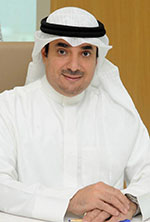
Tareq Yousef AlShumaimry, served as Chairman of the Finance Committee and Chairman of the General Budget Committee of the Permanent Court of Arbitration in The Hague (PCA) and an observer in the Administrative Council of the Court and the Consular at International Court of Justice (ICJ) and the Embassy of the State of Kuwait in the Netherlands during this period from 2013 to 2020.
Email: tareq@alshumaimry.com








